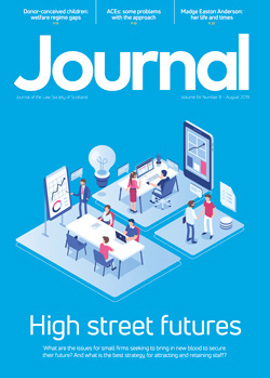Resilience: your flexible friend
The celebrated New York wit Dorothy Parker was once gifted an alligator egg. She brought it home, put it, for want of anywhere better, in the bath, and went out. When she came back, she found that the egg had hatched and her maid had left her employment abruptly, leaving a note saying she was unable to work in a house where there were alligators, and adding these memorable words: “I would have mentioned this before, only I never thought the subject would come up.”
It is a pressing question. In a study conducted by IBM Institute for Business Value in 2015, a survey of 5,247 executives from 21 industries in more than 70 countries reported that the “scope, scale and speed” of their businesses were increasing at an accelerated rate, especially as the competitive landscape becomes increasingly disrupted by technology and radically different business models. Being hyperconnected and responsive to work anytime, anywhere is enormously stressful. Human beings were not designed for it. Burnout, depression, stress and anxiety are at record levels.
Share the lifting
Resilience really matters to the bottom line. A US study published by PwC in 2014 found that initiatives that fostered a resilient and mentally healthy workplace returned $2.30 for every dollar spent – in the form of lower health care costs, higher productivity, lower absenteeism and decreased staff turnover.
All resilient people share the core belief that problems are not to be avoided, but faced head-on, and can be overcome. Just as muscle cannot be built without resistance exercise, so resilience is unachievable without the experience of confronting challenges. It begins in childhood. There is a large body of evidence that bright kids who sail through school are the most vulnerable to meltdown when, at university, they are faced with real difficulty for the first time. The kids who have slogged up the mountain and clambered over boulders are most likely to rise to even greater heights. Parents are well advised to praise not so much the achievements of their little prodigies, but the effort that went into them.
No matter how broad our shoulders, we cannot expect to bear all the burden ourselves. At the top of resilient businesses is a team committed to a common set of objectives and equally committed to supporting one another. In his bestseller Good to Great, Jim Collins makes the point that businesses dependent on charismatic, autocratic leaders rarely make this transition. When these Napoleons leave the battlefield (often because they have eventually been shot by their own side), a spiral downwards almost always follows. Resilient leaders are careful to build a personal board of people inside and outside the business, who can be trusted to advise and mentor them, do heavy lifting when required, and are unafraid to speak truth to power.
Ideas whose time has come
Here are three suggestions for building personal resilience, which in earlier days would have been dismissed as hippy claptrap, but whose time has come. First, practise mindfulness. I have seen mindfulness defined this way: “Sit in a comfortable chair. Close your eyes. Breathe slowly. You’re doing it wrong.” It takes a little time and patience to master, but the calm it brings, and the space it creates to think clearly, can make a great difference to our health and effectiveness.
Secondly, cultivate compassion, not least for ourselves. This is not at all about going soft. Accountability and performance will always be fundamental. But numerous studies have shown that by decreasing negative stress and increasing our sense of wellbeing, compassion substantially boosts performance. Learn from mistakes, especially your own, but forgive them. Perfection is an impossible standard, and few mistakes are so catastrophic that their consequences cannot be repaired. As part of being compassionate to yourself, make a conscious effort to step away from work for a few minutes every day. People who are “always on” are usually turned off sooner or later, at a time not of their choosing.
Finally, look after the physical as much as the mental. Get enough sleep. Take time out from your screens. Don’t eat junk. If you can’t bring yourself to go to a gym (and I’m with you 100%), at least go for a regular walk. All this is easy to say, harder to do, but far from impossible – and the rewards, business and personal, will far exceed the effort.
Regulars
Features
Briefings
In practice
In this issue
- The Judicial Disappointments Board
- Hiding in plain sight
- Food for thought on the drug front
- Salmon farming law must change
- People on the move - Aug 19
- Managing compliance to drive legal practice success
- New practice area: financial services – asset management
- Resilience: your flexible friend
- Appreciation: William Denys Cathcart Andrews






